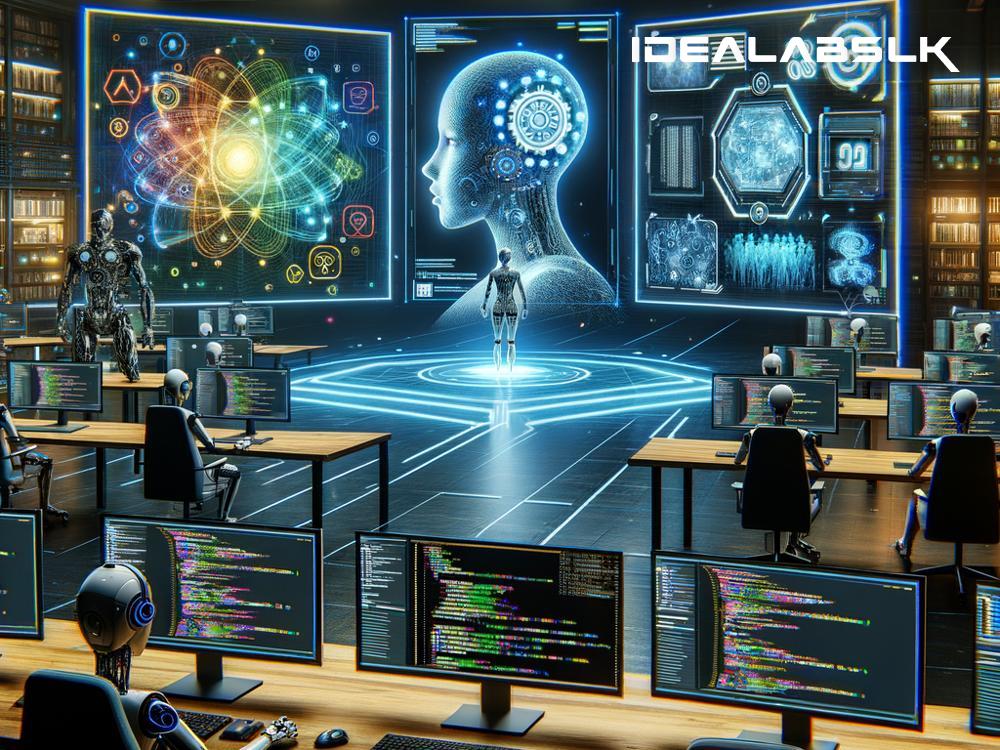The Impact of Machine Learning on Future Game AI Systems in 2025
The gaming industry is on the verge of a massive transformation, and the catalyst of this change is none other than machine learning (ML). By 2025, we're expected to see a new era in gaming that is more immersive, interactive, and intelligent, thanks to the advancements in machine learning and artificial intelligence (AI) technologies. But what does this mean for the future of game AI systems? Let's dive in.
What is Machine Learning?
Before we get into the nitty-gritty, let's quickly understand what machine learning is. In simple terms, machine learning is a subset of AI that allows computers to learn from data and improve their performance over time without being explicitly programmed. This means that machines can learn, adapt, and make decisions, mimicking human intelligence.
The Evolution of Game AI
Traditionally, game AI has been relatively basic. NPCs (Non-Player Characters) in games follow pre-programmed behaviors, which can become predictable and less challenging over time. However, this is where machine learning comes into play. By integrating ML into game development, NPCs can learn from players' actions, leading to more unpredictable and adaptable behaviors.
Enhancing Realism and Immersion
One of the most exciting impacts of machine learning on future game AI systems is the enhancement of realism and immersion. Imagine playing a game where characters react uniquely to your actions, remember your play style, and adapt accordingly. This level of interaction would make gaming experiences more personalized and engaging.
For instance, in a survival game set in 2025, if you tend to use stealth over brute force, the enemy AI could learn to set more traps instead of patrolling openly. This dynamic change in AI behavior ensures no two playthroughs are the same, significantly enhancing replay value.
Learning and Adapting in Real-time
Machine learning enables game AI to learn and adapt in real-time. This means that as you play, the AI observes and adjusts to make the game more challenging or accessible based on your skill level. In 2025, we could see games that are not only fun to play but also grow with you, offering a tailored gaming experience that adjusts to your learning curve.
AI as a Creative Partner
Beyond just making games more challenging, machine learning can also turn AI into a creative partner. Game developers are experimenting with AI that can create unique content, such as levels, challenges, or even narratives, based on player interactions. This could revolutionize game design, allowing for endless, dynamic content powered by AI.
Imagine a game that evolves its storyline based on your decisions, not through pre-written branches, but through AI that understands the narrative impact of your choices and dynamically generates storylines in response. By 2025, such AI-driven storytelling could become a staple in the gaming industry.
The Challenges Ahead
Despite the exciting potential, integrating machine learning into game AI is not without its challenges. There are concerns about the complexity of development, the need for vast amounts of data to train the AI, and ensuring that AI behaviors remain enjoyable and not frustrating for players. Additionally, ethical considerations about how AI is used and the impact of hyper-realistic AI behaviors on players will be significant discussion points.
Conclusion
The future of game AI systems powered by machine learning looks promising, with potential to make games more immersive, challenging, and personalized than ever before. By 2025, we could be playing games that learn from us, adapt to us, and even surprise us, offering experiences that are truly dynamic and engaging.
While there are hurdles to overcome, the benefits of incorporating machine learning into gaming are clear. As developers continue to explore this technology, we can expect to see groundbreaking advancements in game design and AI. The fusion of machine learning and game development is set to redefine our gaming experiences, making the virtual worlds of tomorrow more real and alive than we've ever imagined.

